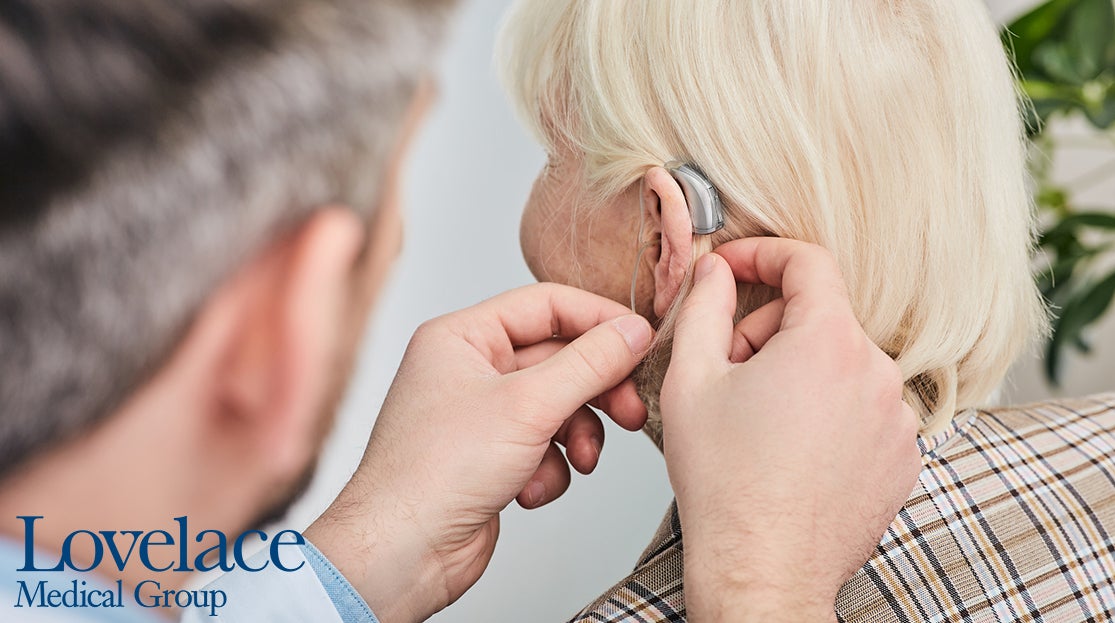Toni Montoya noticed she was having difficulty hearing others months before she scheduled an appointment with an ear, nose and throat specialist near her.
“I’m sorry, when is the next meeting?” she would ask. “Could you please repeat that?” she said more times than she could remember.
“It was getting worse and I couldn’t always hear what my grandchildren were saying,” said Toni. “I consider myself a pretty independent person and wanted to stay that way. It’s hard to be independent when you keep asking people to repeat themselves.”
Toni was not alone. It is estimated that approximately 1 in 3 people between the ages of 65 and 74 has hearing loss, and nearly half of those older than 75 has difficulty hearing.
Types of Hearing Loss
There are 3 types of hearing loss that affect individuals: sensorineurial, conductive and mixed hearing loss.
Sensorineurial hearing loss is the most common type. It can be caused by aging, exposure to loud noise, injury, disease, certain drugs or an inherited condition. Many people with this type of hearing loss benefit from hearing aids.
Conductive hearing loss is often caused by illness or blockage of the outer or middle ear. Children with ear infections or have jammed physical objects into their ear suffer this type, which often can be remedied through medications or by removal of the object.
Mixed hearing loss is a combination of the two above types of hearing loss. In this case, it is important to get tested so that the exact type can be diagnosed and a course of action can be determined.
Clarity from Hearing Aids
Toni had received some brochures in the mail about the hearing specialists at Lovelace Medical Group in Albuquerque and determined that the program had the benefits she needed. She made an appointment, got tested and was later fitted with hearing aids.
Toni and other recipients of hearing aids report they are now able to:
- Hear sounds they hadn’t heard previously
- Speak and hear better when talking on the phone
- Communicate better with family and friends
- Hear better in noisy situations like in a restaurant or in a large group of people
Limitations of Hearing Aids
It’s important to remember that hearing aids are not like eyeglasses. While glasses will restore someone’s vision to 20/20, hearing aids do not restore normal hearing. Hearing aids will amplify all sounds, including background noise and other noises you don’t want to hear. Finally, hearing aids can be expensive and will need fine-tuning in order to fit into your surroundings and lifestyle.
“I know that I waited much too long to get my hearing aids. Now that I have them, everything is going well. They are easy to put in and the maintenance program is very good. A lot of people can’t tell I have them on, so that’s a good thing,” said Toni.
Toni credits the staff in the Audiology Department at Lovelace Medical Group with helping her through the process. “I know that they ‘have my back’ and that I can call anytime with a question.”
For people undecided about getting hearing aids, Toni has a message just for you: “Don’t wait so long to get them. It’s too risky not to get them. Life is too important!”
For more information about hearing loss or hearing aids, or if you would like to schedule an appointment, please visit our website or call us (505) 727-2727.

